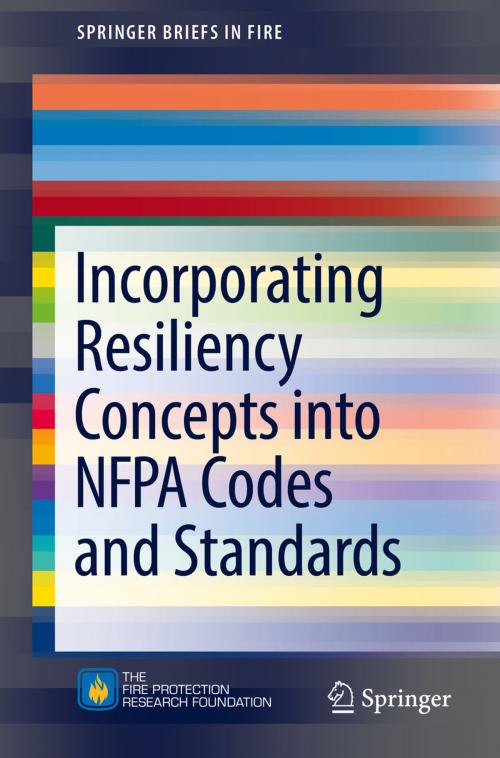Incorporating Resiliency Concepts into NFPA Codes and Standards
Nonfiction, Science & Nature, Technology, Quality Control, Engineering, Civil| Author: | Kenneth W. Dungan | ISBN: | 9781493965113 |
| Publisher: | Springer New York | Publication: | September 30, 2016 |
| Imprint: | Springer | Language: | English |
| Author: | Kenneth W. Dungan |
| ISBN: | 9781493965113 |
| Publisher: | Springer New York |
| Publication: | September 30, 2016 |
| Imprint: | Springer |
| Language: | English |
This brief addresses the contextual definition of resilience, explains the existing resiliency frameworks developed by Federal Agencies, and emphasizes the risk informed approach to applying resiliency concepts to National Fire Protection Association (NFPA) documents.
In an effort to assess and further define NFPA’s position in the realm of resiliency, this brief identifies those provisions in NFPA codes and standards that embody the concepts of resiliency. Additionally, the brief develops an NFPA-centric definition of resiliency and compiles available information to serve as a technical reference for the codes and standards, identifying key gaps in knowledge. Key topics range from engineered features and the built environment to emergency response and risk-informed approaches to disaster events. The brief also includes a comprehensive literature review on multiple resiliency frameworks.
Written for fire protection engineers and professionals who handle disaster risk assessment, this brief provides a thorough overview of resiliency concepts and how NFPA procedures strive to meet recommended standards.
This brief addresses the contextual definition of resilience, explains the existing resiliency frameworks developed by Federal Agencies, and emphasizes the risk informed approach to applying resiliency concepts to National Fire Protection Association (NFPA) documents.
In an effort to assess and further define NFPA’s position in the realm of resiliency, this brief identifies those provisions in NFPA codes and standards that embody the concepts of resiliency. Additionally, the brief develops an NFPA-centric definition of resiliency and compiles available information to serve as a technical reference for the codes and standards, identifying key gaps in knowledge. Key topics range from engineered features and the built environment to emergency response and risk-informed approaches to disaster events. The brief also includes a comprehensive literature review on multiple resiliency frameworks.
Written for fire protection engineers and professionals who handle disaster risk assessment, this brief provides a thorough overview of resiliency concepts and how NFPA procedures strive to meet recommended standards.















